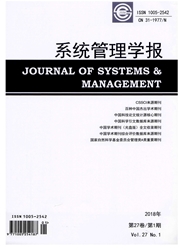

 中文摘要:
中文摘要:
设计了碳税无返还、碳税返还消费者、碳税返还零售商及共同征税等4种供应链碳税模式,比较了4种碳税模式对供应链的定价、产能、利润、减排努力及碳排放强度的影响,并采用数值算例计算了最优的差别税率和统一税率。研究表明:1向制造商征税并降低零售商销售相关产品的"增值税"模式减排效果最佳,对经济的负作用最小;碳税返还消费者是一种"碳税无效"措施;2消费者低碳偏好的存在可使碳税率降低13.2%,中性碳税政策与低碳偏好的共同作用,能够形成潜在的减排-就业"双重红利效应";3统一税率适用于碳排放系数相近的产品区间,而随着碳排放系数跨度的增大,差别税率会更好。
 英文摘要:
英文摘要:
For four supply chain carbon tax modes,including unreturned carbon tax,carbon tax returned to the consumer,carbon tax returned to the retailer,carbon tax afforded by manufacturer and retailer together,we analyze their impact on the prices,production,profits,and efforts of carbon abatement and the carbon intensity in the supply chains.We then calculate the optimal differential tax and uniform tax using a numerical example.The results show that taxing the manufacturer and reducing retailer's VAT for selling related products is the best choice while returning the carbon tax to the consumers is an inefficient method for carbon abatement.The existence of consumers' low carbon preference may reduce the optimal tax 13.2%,and potential double dividend is achieved by neutral tax and low carbon preference.The uniform tax is suitable for those products having similar carbon emission coefficient,and the differential tax is better when coefficient span increases.
 同期刊论文项目
同期刊论文项目
 同项目期刊论文
同项目期刊论文
 期刊信息
期刊信息
